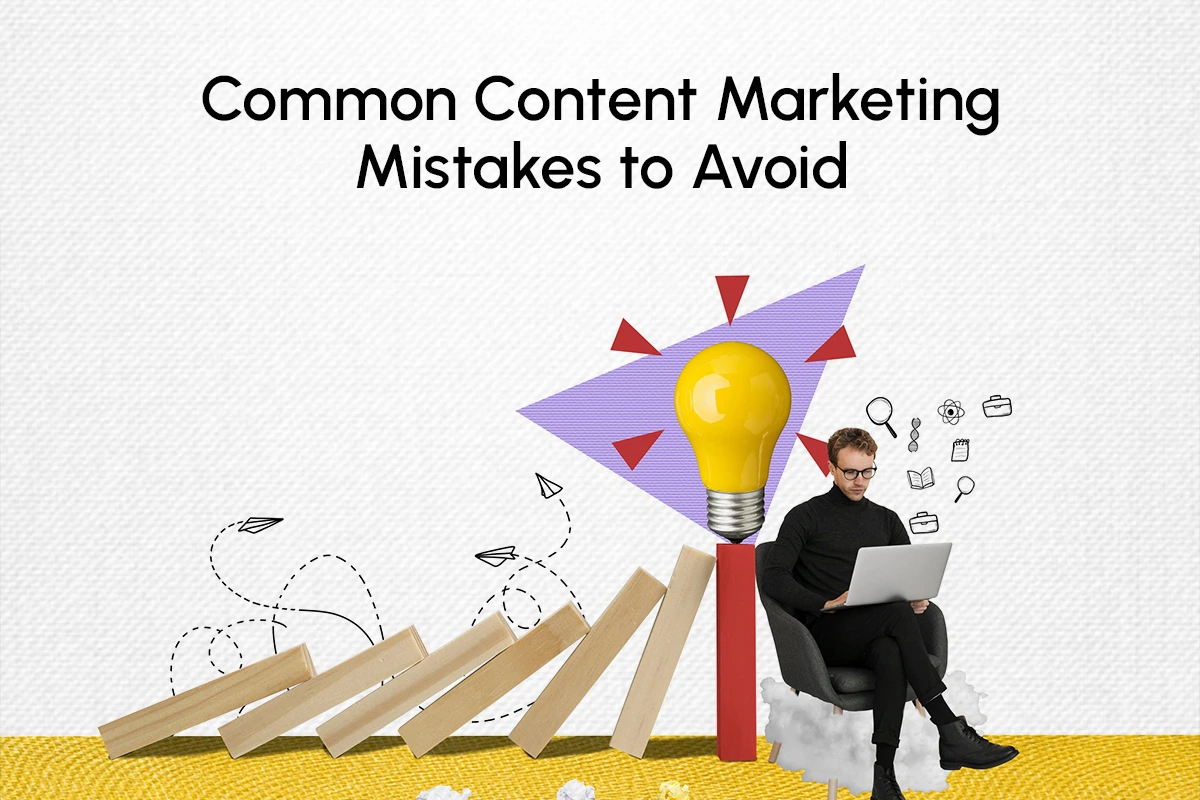A persistent question keeps resurfacing every now and then: “Is SEO dead?”. As we progress to 2024, the significance of this inquiry grows. The short and simple answer? No, SEO is not dead. There is still life in SEO, and it’s evolving. However, it has witnessed huge transformations, in line with technological progress, users’ tastes, and search engines’ algorithms. Therefore, today we will explore the current status of SEO, debunk some popular myths, and outline what you need to do today for successful ranking on search engine results pages (SERPs).
SEO’s Development Over Time
People who use old SEO tricks and tactics to try to trick Google’s search algorithms are dying faster than ever. But making very high-quality content that solves real problems for people is still the best SEO strategy you can use right now.
Search engine optimization (SEO) has come a long way since its inception. What started as simple keyword stuffing and link building has evolved into a sophisticated, multifaceted discipline. Today, SEO guidelines encompass a wide range of factors, from technical optimizations to user experience and content quality. So, why do people believe it’s dead?
Why People Think SEO Might Be Dead
The notion that “is SEO dead” stems from several factors:
1. Rapid technological advancements
2. Changing user behaviours
3. AI and Machine learning are quickly becoming prominent in search algorithms.
4. Competition in space media has intensified.
5. The trend of paid advertising as one of the primary means of reaching out to people
However, these factors haven’t killed SEO; they’ve transformed it. Let’s see how?
Why SEO Is Very Much Alive
Is SEO really dead? It won’t if you do it the right way.
Despite the claims and concerns, SEO is far from dead. In fact, it’s more vital than ever in 2024. Here’s why:
1. Organic Search Is Still a Major Source of Traffic
A lot of website visitors come from organic search engines. According to recent studies, organic search accounts for over 50% of website traffic across industries. Thus, this indicates that SEO remains pertinent and significant.
2. Evolving Algorithms Require Ongoing Optimization
Algorithms used by search engines such as Google are continuously changing. However, this does not imply that SEO is dead; rather, it emphasizes the importance of this field. With every new instalment in these changes, companies must adjust and improve their methods for optimizing their presence on search engines, which makes SEO experts highly sought after.
3. Increased Competition Makes SEO More Crucial
The competition in the digital area is getting stiffer, with many enterprises getting onto the internet. As a result of this intensifying competition, search engine optimization has become more significant than ever. A good SEO strategy is needed to set oneself apart from others when it comes to indexation by search engines.
4. SEO Complements Other Digital Marketing Efforts
SEO doesn’t exist in isolation. Content marketing, social media, and paid ads all play a role in enhancing this type of marketing. The best search engine optimization company integrate SEO with other digital marketing efforts for comprehensive online visibility.
5. Hey Alexa, What’s New in SEO? Voice Search and AI Open
It’s not the end of SEO, but the dawn of new roads with voice search and AI rising. Businesses today are required to fine-tune their optimization approaches by concentrating on themes revolving around natural speech as well as conversational expressions.
6. Local SEO is huge
The use of mobile devices for local searches has prompted a greater emphasis on local SEO. It has been a major component for physical stores and companies that focus on specific regions to draw in customers who live around them.
7. SEO Offers Long-Term Effectiveness
In contrast to paid advertisements that stop producing results once payment stops, search engine optimization comes across as an enduring solution. A properly optimized website will keep attracting visitors through search engines even after the initial optimization has lasted for some months or years thereafter.
8. Adaptation of SEO to New Technologies
SEO has consistently adapted to new technologies and platforms. From mobile optimization to voice search and AI, SEO evolves to remain relevant in the face of technological advancements.
9. Focus on the User Experience
When we talk about modern SEO, it becomes evident that user experience is its main concern. This implies concentrating only on those things that count most for making SEO effective—meeting users’ wants most of the time.
10. Data-Driven Insights
Valuable data and insights about user behaviour, preferences, consumption patterns, etc. can be obtained through SEO. For example, this information is important for companies to understand demand for their services or goods across all possible sales channels based on personal experience, particularly through interactions they may have with any specific product.
The New Rules of SEO in 2024
Search engine optimization requires an urgent change of strategy if companies and marketers hope to succeed in today’s age of digital searching. Below are some latest search engine optimization strategies to apply in 2024 for the best performance of SEO.
1. User Intent is King
Gone are the days when keyword density was the main focus. The modern era calls for user-intentioned interpretation and fulfilment. So much so that search engines have become highly advanced in determining what users want, even if they don’t have an exact match for their keywords at times.
Best practices:
- Conduct thorough user research
- Create content that addresses specific user needs and questions
- Optimize for long-tail keywords and natural language queries
2. Content Quality and Depth
Content continues to remain pivotal in SEO, despite the fact that the quality plateau has surged very high compared to previous years, when low-quality contents were celebrated everywhere. This year, it has been emphasized that search engines prefer thorough, well-researched, and user-oriented articles more than ever before due to their ability to provide actual benefits to them.
Best practices:
- Create comprehensive, authoritative content on your topic
- Use data, research, and expert insights to back up your claims
- Regularly update and expand your existing content
3. E-E-A-T (Experience, Expertise, Authoritativeness, Trustworthiness)
Google’s E-E-A-T principle has become increasingly important, especially for YMYL (Your Money or Your Life) topics. Demonstrating expertise and building trust are crucial for ranking well.
Best practices:
- Showcase the author’s credentials and expertise
- Obtain backlinks from reputable sources
- Maintain consistent NAP (Name, Address, Phone) information across the web
4. Technical SEO is More Important than Ever
Due to the introduction of Core Web Vitals and the increased focus on user experience, technical SEO has become a prominent subject. Top-ranking SEO firms are those that merge technical enhancements with content plans perfectly.
Best practices:
- Optimize for Core Web Vitals (loading speed, interactivity, visual stability)
- Ensure mobile-friendliness and responsive design
- Implement structured data markup
5. AI and Natural Language Processing
The emergence of AI-driven search algorithms, such as Google’s BERT and MUM, has completely changed the way search engines understand questions and information. Therefore, a more natural and conversational manner of creating and optimizing content is required.
Best practices:
- Focus on natural language and conversational content
- Optimize for voice search and featured snippets
- Use AI tools to analyze and optimize your content
6. Visual Search Optimization
As visual search capabilities become more advanced, it is even more vital to optimize pictures and films. This holds true for e-commerce as well as visually driven fields.
Best practices:
- Use high-quality, relevant images
- Implement proper alt text and image descriptions
- Optimize for Google Lens and other visual search tools
7. Local SEO and “Near Me” Searches
The rise of mobile devices has made local SEO more important than ever. Businesses need to optimize for “near me” searches and local intent.
Best practices:
- Claim and optimize your Google My Business listing
- Encourage and respond to customer reviews
- Create location-specific content and landing pages
8. Video Content Optimization
Video content continues to dominate online consumption. Optimizing video content for search is a crucial aspect of modern SEO.
Best practices:
- Create engaging, informative video content
- Optimize video titles, descriptions, and tags
- Use transcripts and closed captions for better indexing
9. User Experience (UX) as a Ranking Factor
Search engines are placing increasing importance on user experience signals. Websites that provide a seamless, enjoyable experience are more likely to rank well.
Best practices:
- Focus on intuitive navigation and site structure
- Minimize intrusive interstitials and ads
- Ensure fast loading times across all devices
10. Ethical Link Building and Digital PR
While link building remains important, the focus has shifted towards earning high-quality, relevant backlinks through valuable content and digital PR efforts.
Best practices:
- Create linkable assets (infographics, research studies, tools)
- Engage in guest posting and expert roundups
- Leverage social media and influencer partnerships
The Role of Content Writing and Marketing
In the new SEO landscape, content writing and marketing play a pivotal role. It’s not just about creating content for search engines; it’s about crafting valuable, engaging content that resonates with your target audience. This approach not only helps with SEO but also builds brand authority and customer loyalty.
Key strategies for content marketing success:
- Develop a comprehensive content strategy aligned with SEO goals
- Create a mix of content types (blog posts, videos, podcasts, infographics)
- Implement a content distribution plan across various channels
- Regularly analyze and optimize content performance
SEO is Not Dead, It’s Evolving
The question “is SEO dead” misses the point. SEO isn’t dead; it’s evolving, as it always has. The fundamental goal of SEO remains the same: to help users find the most relevant, valuable content for their queries. What has changed are the methods and strategies we use to achieve it.
In 2024, successful SEO requires a holistic approach that combines technical expertise, high-quality content creation, user experience optimization, and a deep understanding of search engine algorithms. By staying informed about the latest trends and adapting your strategies accordingly, you can ensure that your website not only survives but thrives in the ever-changing search setting.
Remember, SEO is not a one-time effort but an ongoing process of optimization and improvement. Whether you’re handling your SEO in-house or working with a search engine optimization services provider, staying agile and embracing change is key to long-term success in the digital world.




